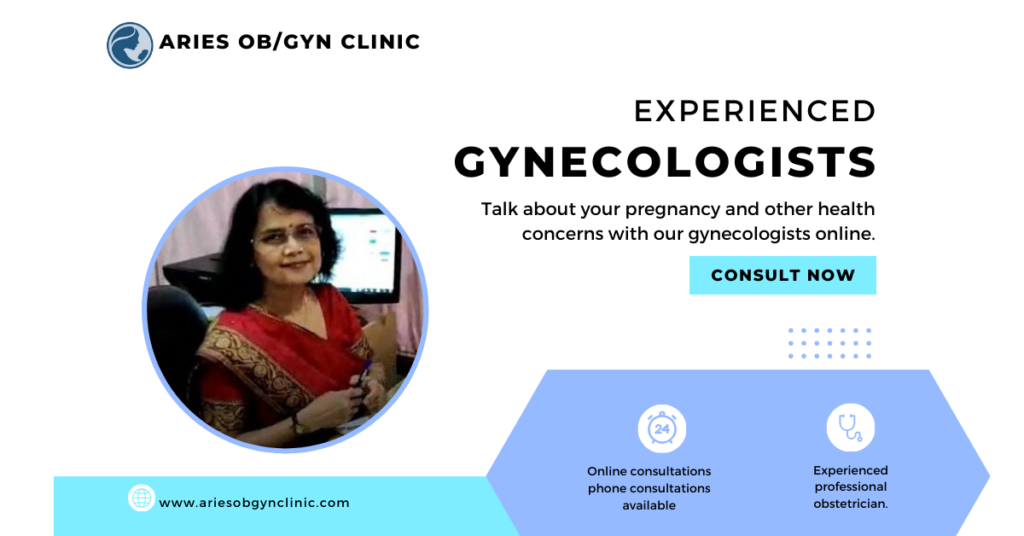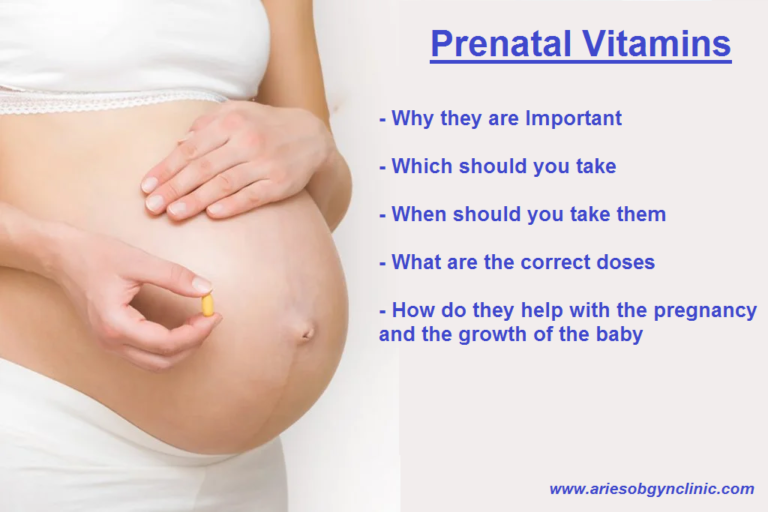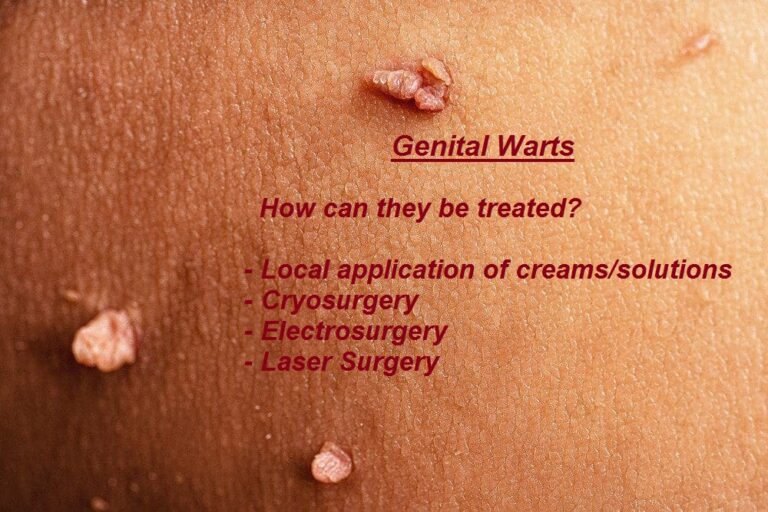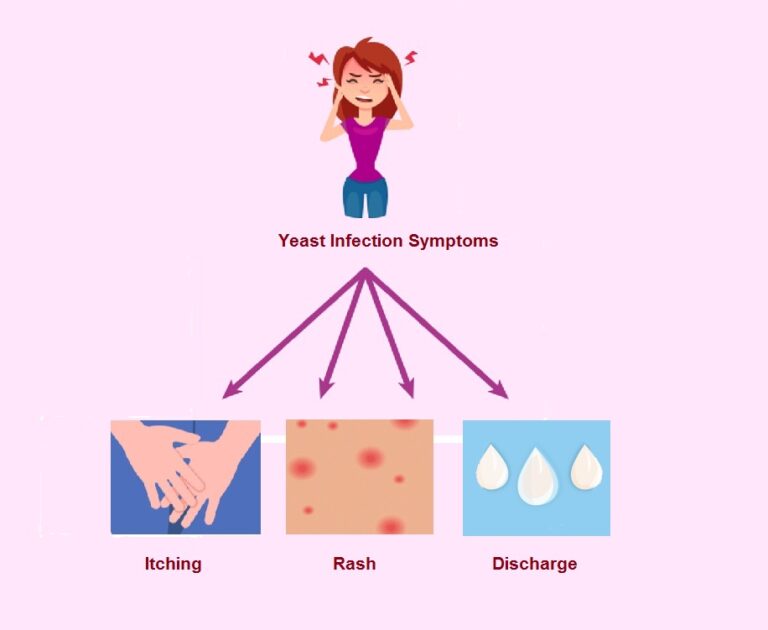A hysterectomy is a major surgery to remove a woman’s uterus. It may also include removal of the cervix, ovaries and the fallopian tubes. The decision to remove the uterus is taken only after all other treatment procedures have failed to improve the woman’s health.
A woman cannot become pregnant after removal of the uterus.
What are the reasons for a hysterectomy?
- Large uterine fibroids which causes heavy bleeding or acute pain
- Endometriosis – This is a condition in which endometrium (inner uterine lining) grows outside the uterus and causes heavy bleeding and acute pain during the periods.
- Cancer of the uterus and/or the cervix – early hysterectomy can prevent spread of the cancer.
- Uterine Prolapse
- Endometrial hyperplasia causing excessive abnormal vaginal bleeding
- Ovarian cancer
- Chronic pelvic pain
What are the different types of hysterectomies?
There are two main types of hysterectomies – a complete or total hysterectomy and a partial hysterectomy. A complete hysterectomy is one in which the uterus, cervix, Fallopian tubes and ovaries are removed. In a partial hysterectomy, also called subtotal or supracervical hysterectomy, only the uterus is removed, the cervix and the ovaries are left intact. The ovaries and the surrounding lymph nodes may or may not be removed, depending on the reason for the hysterectomy.
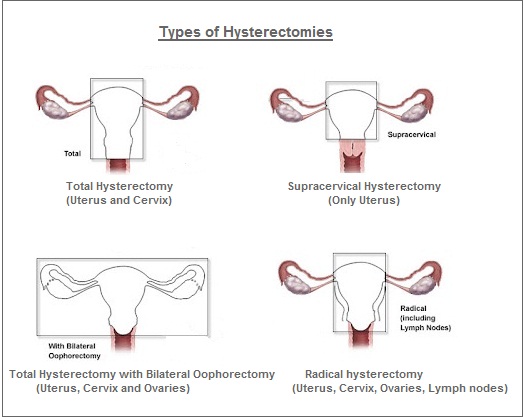
Different Surgical techniques for a Hysterectomy:
There are different surgical procedures for removal of the uterus. What procedure is decided upon depends on the type of hysterectomy and also the condition which indicates the need for a hysterectomy.
Abdominal Hysterectomy
Abdominal hysterectomy is a surgical procedure in which an incision is made on the the abdomen and the uterus and cervix removed. If the ovaries and fallopian tubes are also removed, then the surgery is known as a Total Abdominal hysterectomy with salpingo oophorectomy. If only the upper part of the uterus is removed and the cervix is left intact, then it is known as a partial hysterectomy.
Vaginal hysterectomy
This is a technique in which the uterus and cervix is removed through the vagina. In this type of surgery, no incision is made on the abdominal wall. The advantage of a vaginal hysterectomy is that healing is better and it is less painful than an abdominal hysterectomy. It is the ideal surgery in cases of uterine prolapse.
But vaginal hysterectomy is very difficult and not advisable in the presence of scar tissue ((adhesions) inside the pelvic cavity, large fibroids, endometriosis and in very obese women .
Laparoscopic Hysterectomy
Also known as keyhole surgery, a laparoscopic hysterectomy entails the making of a number of small incisions ( about 1-2 cms) on the abdomen , inserting in laparoscopic instruments and incising the ligaments and tissues holding the uterus in place. Since it is a less invasive procedure, hospital stay is shorter with lesser costs. Risks of formation of blood clots is also comparatively low.
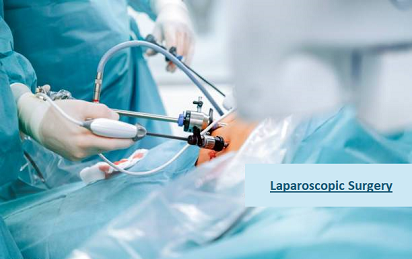
The main disadvantage is that it cannot be done in certain conditions – for example , in the presence of large fibroids or in dense adhesions. But nowadays, in experienced surgical hands, these restrictions can also be overcome and laparoscopic hysterectomy can be carried out.
Laparoscopic Assisted Vaginal Hysterectomy (LAVH)
This is a surgery in which the attachments of the uterus is incised and removed from the uterus by laparoscopic technique. The uterus, cervix and ovaries are then then removed through the vagina.
Robotic Hysterectomy or Robot-assisted laparoscopic hysterectomy
Robotic hysterectomy is also a a minimally invasive surgery like a laparoscopic surgery. Special surgical tools inserted inside the abdomen allows the surgeon to perform the procedure via a computer (robotic assisted procedure). There is usually less pain and a shorter hospital stay after surgery. Recovery is also easier with less complications like blood clots, bleeding or infection.
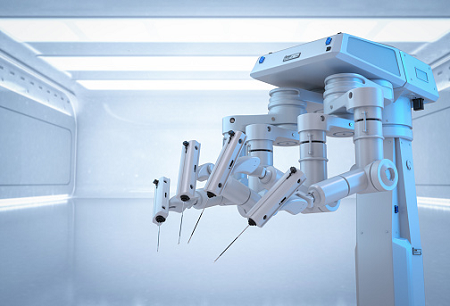
Radical hysterectomy
This is a type of extensive hysterectomy in which not only the uterus, the ovaries and the fallopian tubes are removed but also the upper part of the vagina, surrounding tissues and lymph nodes which drain the uterus and the surrounding tissues. This type of hysterectomy is usually done in endometrial cancer or ovarian cancer.
Post operative care
In the hospital, you will be monitored for pain, bleeding, any infection. Your doctor will encourage you to resume normal life gradually . Do ask your doctor for follow up advice.
Most women have a sense of relief after a hysterectomy with no complications . But some women may have a sense of loss at removal of the uterus and other reproductive organs.
What to Expect after a Hysterectomy
- You will no longer have a period.
- If you are less than 50 years old, you will have surgical menopause and you may need to be started on Hormone Replacement Therapy (HRT)
- If you are unwilling to take HRT, you may need to be treated for menopausal symptoms like hot flashes and sweating.
- HRT is not necessary if you are above 50 years.
- Sex life generally does not change. In fact, it may become better since there will be relief from pain or bleeding and because there will be no fear of getting pregnant.
- Women who have had a partial hysterectomy and have an intact cervix, may continue to need pap smears.
- If hysterectomy is done at a young age, some women may feel a sense of loss due to loss of fertility.
Risks of a Hysterectomy
A hysterectomy is generally a very safe surgery. But some risks are:
- Blood loss – may be severe , especially in case of radical hysterectomy for cancer
- Blood clots – especially if you remain immobile after the surgery for a long time
- Pain
- Allergic or unforeseen reaction to anesthesia
- Damage to the urinary tract, bladder, rectum or other pelvic organs during surgery, which may require further surgical repair. This is very uncommon.
How long will I have to stay in the hospital?
That depends on the type of hysterectomy done. Normally, if the uterus is removed vaginally, you can go home in about 2-3 days. An abdominal hysterectomy may need a longer stay. Women who have a assisted laparoscopic hysterectomy can go home in 1-2 days.
When will I be able to join work again?
Most people are able to return to normal life and their normal activities after about four to six weeks after surgery . Till then, you can take light exercises like walking. But you will still need to take plenty of rest and avoid lifting heavy weights during this time since there may some amount of pelvic pain at this time.
Recovery from a laparoscopic surgical procedure is shorter ( about 1-2 weeks) than an abdominal hysterectomy.
A vaginal surgery may need about 2 weeks of rest.
When can I have sex again? Will it be painful the first time? Will I bleed? Will I be able to orgasm?
If you have had a partial hysterectomy and the cervix is intact, then you can have vaginal intercourse after four weeks. But in case of a total hysterectomy, it will be better to wait for six weeks since it takes that long for the incision in the upper vagina to heal. Oral sex is possible earlier, after the vaginal discharge stops. Your doctor will give you instructions depending on the type of hysterectomy and the extension of surgery.
In women who have had an abdominal surgery, care must be taken not to out any pressure on the scar in the lower abdomen.
There is usually no pain the first time you have sex after hysterectomy. Nevertheless, it will be better to try only gentle and partial penetration. If the ovaries are removed, there may be some amount of vaginal dryness and you may need to use a lubricant during sex. And no, bleeding will not occur.
There is a misconception that removal of the cervix causes difficulty in orgasm. But since orgasm is not dependent on the presence of the uterus or cervix, it is not affected in any way.
Will I get menopausal symptoms immediately after the surgery?
The periods will stop with the removal of the uterus. In premenopausal women who have undergone a total hysterectomy with removal of the ovaries, surgical menopause will occur. In this case, you may get symptoms of menopause like hot flashes and night sweats immediately after the surgery.
But if surgery is limited to just the uterus and the ovaries are retained, then the level of estrogen in the body will continue to be normal and there will not be any menopausal symptoms immediately after surgery. Symptoms of Menopause will occur at the usual time.
If cervix is not removed, will I have periods?
If the cervix is not removed, you may get an occasional spotting or mild bleeding at the time of the menstrual periods.. But this does not occur in all women and many women stop getting their periods even when the cervix is present.
Will I need to get pap smears again?
Whether you need a pap smear after a hysterectomy depends on why the hysterectomy was performed and whether your cervix was removed during the procedure.
Since a partial hysterectomy removes only the uterus and not the cervix and since the pap smear is needed to test for cervical changes (dysplasia), you will need to continue to get pap smears after a partial hysterectomy.
Pap smears are not necessary after a complete hysterectomy, unless it was done for a cervical cancer or a precancerous lesion.
Will I need hormone replacement therapy (HRT)?
If you are below the age of 50 years and the ovaries are removed, then yes, it will be better to start HRT immediately after the hysterectomy. But if you had already attained menopause before the hysterectomy, or if you are over the age of 50 years, then you may not need HRT.
Being informed that you need a hysterectomy can be overwhelming for anybody but information about the procedure will help you to face the challenge with confidence.
Prognosis
For most women, life after a hysterectomy is usually good .
Read More Questions and Answers on Pregnancy and Gynecology
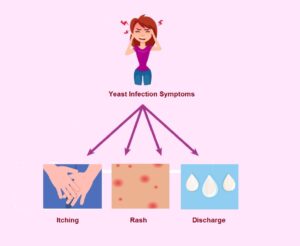
I think I have a yeast infection
I think I have a yeast infection. I had vaginal itching earlier and it is itching again now. What should i do?

I think I have Bacterial Vaginosis
I think I have bacterial vaginosis. I have a vaginal discharge with a fishy odor since the last few days. When should I see a doctor?
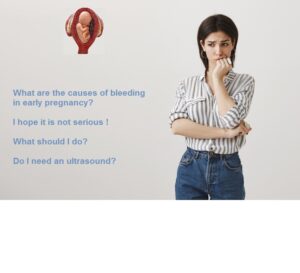
I am in early pregnancy and have dark brown discharge
Early pregnancy bleeding. What is wrong with me? What should I do?

I am in Menopause and Bleeding Heavily
I am 52 years old and in menopause. I have been bleeding heavily for 8 days. What should I do now?

Missed birth control pill. Will I get pregnant?
I missed a birth control pill on the second week. Then I took the next one on time. I also took the placebo pills I day early. Will I get pregnant?

Why do I have Irregular Periods?
Why Are My Periods Irregular? I Stopped Taking Birth Control Pills 6 Months Ago? Is That The Reason?


